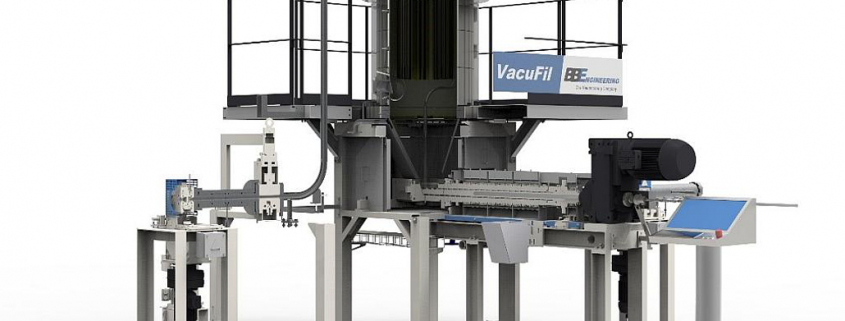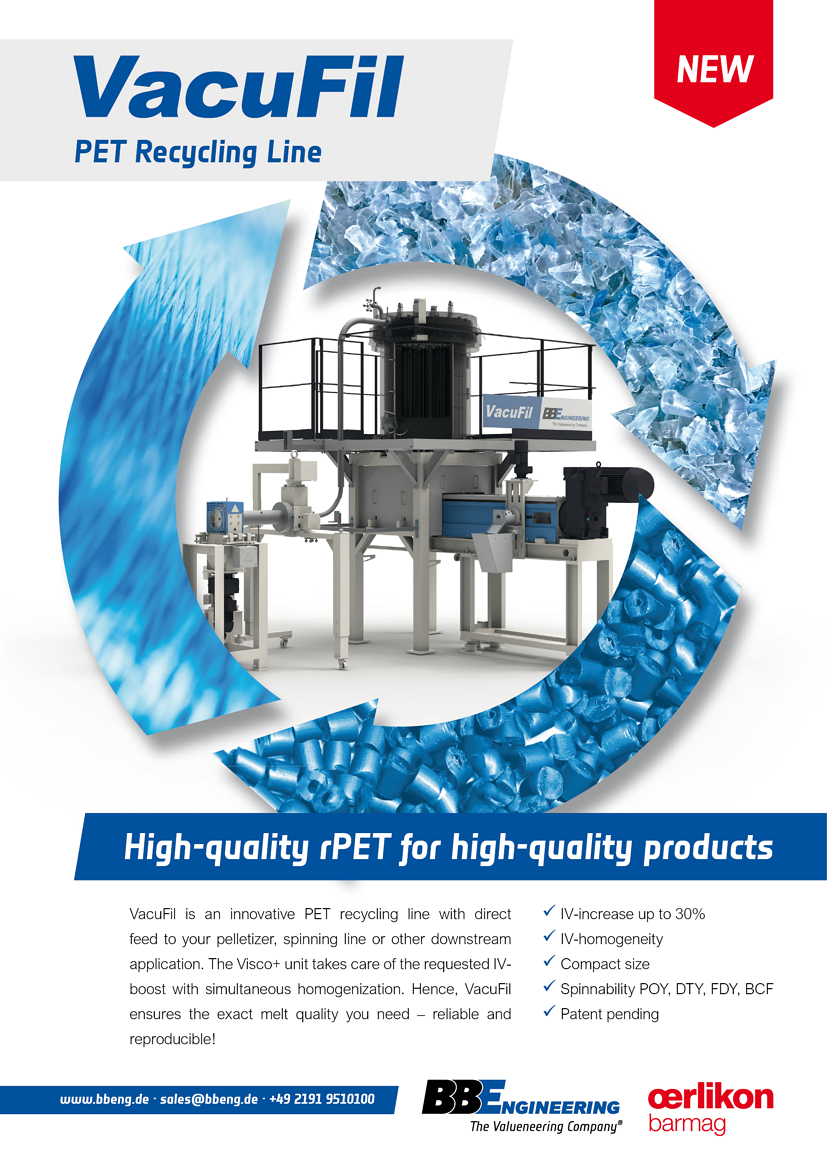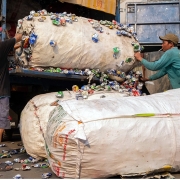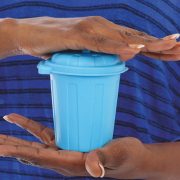Upgrade Component for VacuFil Recycling System
German-based BB Engineering GmbH has expanded its melt filter portfolio to include a patented large-area vacuum filter designed especially for processing polyester waste.
The so-called Visco+ filter is already known as the key component of the BB Engineering VacuFil recycling system. Now, it is also available as a separate and easily-integratable upgrade component for existing systems. Within this context, the uses of the Visco+ are by no means limited to just decontamination. Here, the Visco+ offers the following solutions:
- IV homogenization: if an existing production system is struggling with IV fluctuations, the Visco+ can actively intervene and balance out any irregularities;
- IV increase: if the final viscosity is insufficient when processing recycled materials, the Visco+ can increase the IV without the negative impact of long residence times.
“In this way, the Visco+ enables fast and flexibly-controllable viscosity build-up and reliable viscosity monitoring of the polyester melt using a to-date unique, patented process,” BB Engineering assured. “Depending on the intended end-use, the melt can be adjusted to the further processing procedure in a targeted manner. The requisite melt properties – above all the intrinsic viscosity, but also the purity and homogeneity – are achieved in a reliable and reproducible manner and can also be adjusted during ongoing operation.”
According to the German machine building company, founded in 1997 as a joint venture between Oerlikon Barmag and Brückner Group GmbH, its process is new and super-efficient. As a melt filter, the Visco+ would operate like a liquid-state polycondensation unit. A maintenance-intensive reactor or a deposit-prone stirring unit were not required. “Moisture is removed from the PET in the filter, which – in conjunction with an adjustable residence time – results in the desired IV increase in the vacuum. That enables a controlled IV build-up of up to 30 percent.”
The intrinsic viscosity is the central quality figure in PET recycling and rPET processing. It determines the melt performance in the downstream production process and the properties of the end products. Therefore, it is continually monitored through an integrated viscosity measurement unit and reliably adjusted in the event of deviations (caused by disparate input qualities, for example). At the same time, the filter provides an enormous material surface compared to the volume and continuously renews this. To this end, contamination can be removed particularly effectively from the starting material through an automatically regulated high-performance vacuum (1-30 mbar). “The result is a pure, homogeneous melt with controllable IV values and consistent quality,” BB Engineering emphasized. “For this reason, the Visco+ is particularly suitable for recycling PET waste that is to be reused for high-end products.”
(Published in GLOBAL RECYCLING Magazine 2/2021, Page 50, Photo: Ali / stock.adobe.com)









